Shortly after his victory, Lukashenka said in an interview with Narodnaya Gazeta: “I am for the sovereignty of beloved Belarus, but without borders or custom controls with good neighbors, Ukraine and Russia, in the first place” (Narodnaya Gazeta, 1994, 18—20 June). Lukashenka was, indeed, more pragmatic than Kebich in some issues. For instance, after his election, Lukashenka refused from the idea of the single ruble zone with Russia. At the same time, already in October 1994 the state media disseminated his statement saying that Belarus should not have “relations (with Russia) of the same level as it was going to have with the countries of the far abroad”. In a March interview to Narodnaya Gazeta, he noted: “The strengthening of our ties with Russia is the fundamental factor of pulling the country out of crisis and stabilizing many other aspects of the republic’s domestic life. I mean the politico-economic, social, historical and moral aspect, which is directly connected with the 50the anniversary of the Great Victory (of the Soviet Union in WW II) and the restoration of the historic community of Slavic nations. To refuse a deep notional significance of this agreement means disrespect for that historical past and the present, with which brotherly Belarusian and Russian peoples lived live and will continue to live” (Narodnaya Gazeta, 1995, 23 March).
Both under Lukashenka and Kebich, the repertoire of integration rhetoric has remained traditional: it is stated, that “friendship with Russia is a guarantee of our country’s sovereignty”. Lukashenka a little bit updated his integration rhetoric in the second half of 1996, when he said that in Belarus “the Russian-speaking population feels itself like in the former Soviet Union” (Narodnaya Gazeta, 1996, 15 November).
The thesis about the equality of Russia and Belarus in a new union was part of the then Belarusian propaganda in order to play down even the possibility of Belarus’ incorporation into Russia as a separate province. As Zviazda wrote in early 1997, Lukasenka stated about it at the top of his voice during a meeting with the delegates to the Minsk-hosted 3rd Congress of the Peoples of USSR.
For some time, one could observe a balance in the state media between the full-steam-ahead integration propaganda and the full-steam-ahead independence propaganda. That fragile balance was destroyed in July 1999, when Lukashenka emotionally accused the Russians of sabotaging integration decisions: “We…have made a great mistake, having declared the multi-vector approach of our foreign policy, yet making an extreme heel eastward. As a result, we can lose a lot in the long-term perspective” (Belarusky Rynok, 1999, ¹ 26, p.4). A new sub-topic emerged in the integration topic: the Belarusian regime wants to integrate not only with Russia, but with Ukraine as well. In the autumn of 1999 the then Belarus Foreign Minister Ural Latypaū told Belaruskaya Dumka that it would be better for Belarus to unite with Russia together with Ukraine.
Developments around the Belarus—Russian integration attained a new quality after Vladimir Putin was elected the Russian president. The new Kremlin administration staked on the Russian economic dominance in the former Soviet countries and at the expansion of the Russian private capital into those countries. Belarusian and Russian economic elites got into a conflict, caused by the Russian capital’s plans to put under their control the strategic industries in Belarus. In May 2002 Lukashenka stated at a session of the Parliamentary Assembly of Belarus—Russian Union that the real use from Belarus—Russian integration was “almost invisible”. The question of introducing the Russian ruble on the territory of Belarus remained very foggy, too. Already in December 2000, Lukashenka hinted in Respublika that this question was far from being resolved.
The state-sponsored media played the integration card with a far greater enthusiasm during the last year’s presidential elections. Lukashenka actively turned to this topic already in May 2001 in his speech at the 2nd All-Belarusian Congress.
But, right after the elections, the nature of integration rhetoric in the state-sponsored media drastically changed. In December Lukashenka stated through the central media that Belarus was prepared to integrate with Russia as far as Russia was ready. In 2002 the previously designed formula — “full integration and full independence” is living through a crisis and nearly collapses amongst the Belarusian elites. It even has become trendy among the government officials to confess their adherence to Belarusian independence as well as their understanding of the need to revise the previous policy towards Belarus—Russian union.
Mikhas TYCHYNA, Belarusian P.E.N.-Center. THE STYLE OF JOURNALISTIC PUBLICISM AS A BASIS FOR PROSECUTION IN COURT
It is perhaps surprising to reflect on such marginal phenomena as the style of journalistic publicism at the time when political situation is dictating its game rules and is not taking into account the details. The disinterested, “pure” opinion in such circumstances is always an illusion, an escape from a real situation or even the exclusion of the conditions for such an opinion.
However, modern journalistic practice once and again reminds us that the pressure of the “grand” political field has its limits. Eventually this pressure encounters the border, beyond which everything depends on the natural, autonomous existence rules of a modern intellectual, who has interest in events, strives for independence and has the feeling that “the common case” is feasible. The autonomous existence of an intellectual (journalist, writer, scholar), which envisages orientation to inner criteria, gains a status of the efficient weaponry in the fight with the social evil. That is why the authorities, which tend to control everything, eventually dared to declare war against the language.
But, I am not yet talking about the language in general. What I am talking about now is the style of journalistic publicism as well as the cases when style serves as grounds for prosecution in court, requiring a literary and linguistic expertise. There emerges a new profession of literary expert, which does not deal with the traditional fiction, pushed at the background of public interest. Rather, it has to deal with such a phenomenon of the contemporary cultural life as a new journalism. The new journalism gave birth to a new language of describing events, which in return has remarkably changed our reality. This process is not complete yet; it is moving hard, but the model of virtual Belarus is gradually attaining its image. Authorities, which regard independent journalists as their main enemy, readily take use of the problems of growth and age of the new wording for the sake of self-assertion.
Based on my practical experience as an expert, I think that we have gone through three stages in the making of journalism, which can be labeled as golden, silver and bronze stages. Of course, on condition that we keep our sense of humor in place. I think we are quickly approaching the Iron Age of Belarusian journalism, when all the media will be following Belarusian Television (BT) and presidential daily Sovietskaya Belarussia (SB) as a role model, just like copying news program Vremya and newspaper Pravda in the Soviet times.
The first (“golden”) age (1989—1996) was marked with impetuous (and chaotic) heyday of the media, with dozens of talented people emerging and the controversial processes of pushing away from the previous new language and the birth of the modern language. The power, genetically linked with the Soviet times, naturally recognized writers as potential enemies. It was at that very moment when they set up a trial of Svetlana Alexievich, the author of the documentary book titled “The Zinc Boys”. During the proceedings, the court invited literary experts, myself included. The experts had to start again a campaign against illiteracy in the field of fiction, as almost every recent Soviet citizen routinely considered itself a literary expert and did not assume that the language of fancies was intended for an advanced reader. Particularly, we had to explain the basic truth: 1) that the “documentary prose” is the “fiction prose”; 2) that a documentary author has the right to literary fiction (deliberate selection of facts, a conceptual text construction, etc.); 3) that the literal restoration of an oral narration by heroes is impossible on paper; 4) and finally, that trying a writer for her works resembles the repertoire from the absurdity theater.
Читать дальше
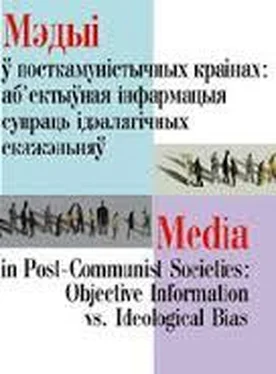

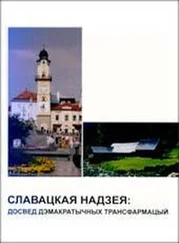
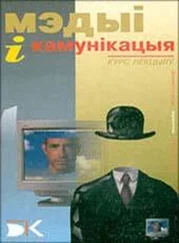
![Невядома - Быць (або ня быць) сярэднеэўрапейцам [сучаснае польскае мысьленьне]](/books/49075/nevyadoma-byc-abo-nya-byc-syaredneeЎrapejcam-such-thumb.webp)
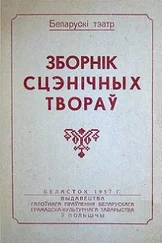

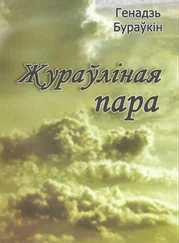

![Ная Геярова - Институт проклятых. Сияние лилии [litres]](/books/407702/naya-geyarova-institut-proklyatyh-siyanie-lilii-litr-thumb.webp)

